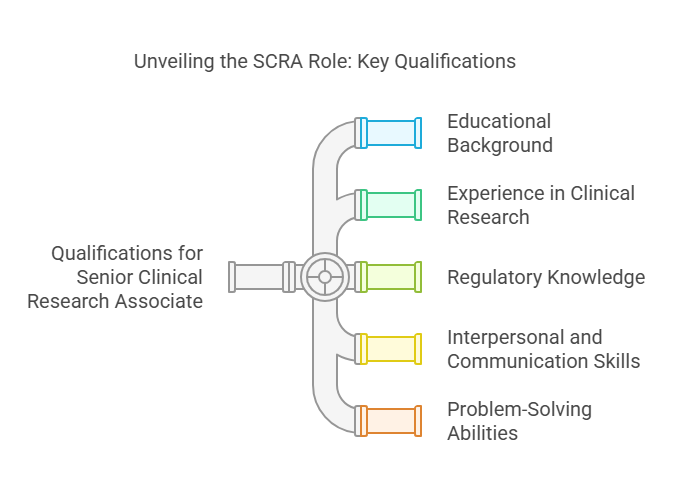Senior Clinical Research Associate Jobs
In the continuously developing field of clinical research, Senior Clinical Research Associates (SCRAs) are an integral part of running clinical trials. As the healthcare environment continues to expand, so does the need for experienced individuals who can handle large-scale clinical trials. For those interested in growing within the field of clinical research, the position of a Senior Clinical Research Associate (SCRA) not only provides a career boost but also a chance to make a real impact in the medical field. In this guide, we will discuss the roles and responsibilities, required qualifications, the future of the industry, and the best practices for landing a Senior Clinical Research Associate job.
What is a Senior Clinical Research Associate?
A Senior Clinical Research Associate (SCRA) is a senior level position within the clinical research industry that involves monitoring of clinical trials to establish if they are conducted properly as per the regulatory requirements and the clinical trial protocols. The SCRAs are in close contact with principal investigators, clinical trial coordinators, and regulatory authorities to guarantee the correctness, safety and scientific integrity of clinical research protocols.
SCRAs are more experienced and work on more complicated studies than CRAs. They can mentor junior CRAs, and they might oversee several trials at once.
Key Responsibilities of Senior Clinical Research Associates
The scope of responsibilities for a Senior Clinical Research Associate extends beyond what is typically expected of a junior CRA. Below are some of the primary duties that come with this role:
Study Planning and Coordination
Working with the sponsor and clinical trial team to develop and launch clinical studies.
Establishing trial protocols and guaranteeing compliance with standard guidelines such as Good Clinical Practice (GCP) and International Council for Harmonisation (ICH) guidelines.
Conducting site selection and assessing the qualifications of clinical trial sites.
Monitoring Clinical Trials
Visiting clinical trial sites to ensure proper study conduct, data collection, and documentation.
To this end, it is essential to ensure that clinical trials are conducted in accordance with ethical standards, institutional policies, and regulatory guidelines.
Monitoring patient safety and adverse event reporting.
Data Management and Reporting
Verifying data accuracy by cross-referencing source documents and case report forms (CRFs).
To ensure timely and accurate data submission to sponsors or regulatory bodies.
Preparing detailed reports and presenting findings to stakeholders.
Regulatory Compliance
Ensuring that all aspects of clinical trials adhere to local and international regulatory standards, such as the FDA and EMA guidelines.
Ensuring that sponsors, regulatory authorities and clinical trial sites can communicate effectively.
Keeping up-to-date with changes in regulatory requirements and making sure they are implemented in ongoing trials.
Mentoring and Leadership
Providing guidance and support to junior CRAs.
Acting as a point of escalation for issues that arise during trials.
Leading site initiation, monitoring visits, and close-out meetings.
Required Qualifications and Skills for Senior Clinical Research Associate Jobs
The role of an SCRA requires a blend of education, experience, and interpersonal skills. Below are the qualifications and key competencies that hiring managers typically look for in candidates for Senior Clinical Research Associate jobs:
Educational Background
A bachelor’s or master’s degree in life science or health related field like biology, nursing or pharmacology is generally required.
Higher level certifications like a Clinical Research Coordinator Certification or an Advanced Clinical Research Project Manager Certification can also enhance the candidate’s application if they hold advanced degrees.
Experience in Clinical Research
Typically, SCRAs must have 3-5 years of experience working as a CRA or in a similar role.
The firm appreciates the experience of managing clinical trials across different phases of the trial including Phase I to IV.
Regulatory Knowledge
A thorough understanding of Good Clinical Practice (GCP), FDA regulations, ICH guidelines and any other relevant regulatory frameworks.
Experience in preparing regulatory submissions is a plus.
Interpersonal and Communication Skills
Excellent written and verbal communication skills are crucial for interacting with clinical sites, sponsors, and regulatory authorities.
It is imperative to have strong organizational skills in order to conduct and manage multiple trials and to make sure that they are on the right path.
Problem-Solving Abilities
The ability to quickly identify and address issues that arise during clinical trials is critical.
SCRAs must be able to think critically and troubleshoot problems without compromising the integrity of the study.
Career Path and Opportunities for Senior Clinical Research Associates
Getting an SCRA is often thought of as a major stepping stone in the clinical research career. Clinical trials are on the rise due to the rising need for clinical trials especially in the pharmaceuticals, biotechnology and medical devices industry, job prospects for SCRAs are good.
Industry Sectors for Senior Clinical Research Associates
Pharmaceutical Companies: SCRAs are usually taken by large pharmaceutical companies to oversee drug development trials.
Contract Research Organizations (CROs): SCRAs are often hired by CROs, which are in turn contracted by pharmaceutical companies and biotech firms to manage their clinical trials, so SCRAs get to work on diverse projects.
Biotechnology Firms: The biotech sector is rapidly growing, with a need for SCRAs to manage complex clinical trials for innovative therapies.
Medical Device Companies: SCRAs may also be involved in trials of medical devices, so that these devices are certified as meeting the required standards before they get to market.
Job Growth and Salary Expectations
As stated by the U.S. Bureau of Labor Statistics, the job outlook for clinical research professionals, including SCRAs, is expected to increase by 6% from 2021-2031 for a total growth of 6%. The reason for this is the rising number of clinical trials and the rising need for new therapies and treatments.
The salaries for Senior Clinical Research Associate jobs however depend on the level of experience, the country and the organization. The estimate for an SCRA is $90,000 – $120,000 a year, and for experienced professionals, it is even possible to earn more in regions or sectors that are particularly in demand.
Advancement Opportunities
Senior Clinical Research Associates have several paths for career advancement:
Clinical Trial Manager: Supervising multiple SCRAs and guaranteeing the proper conduct of multiple clinical trials at the same time.
Clinical Operations Director: Managing the entire clinical trial department, including budget management, strategic planning, and team leadership.
Regulatory Affairs Specialist: Leveraging clinical research experience to focus on navigating the regulatory landscape for clinical trials and medical product approval.
Final Thoughts
The Senior Clinical Research Associate jobs are a good stepping stone for those who want to be in the clinical research career path and have a solid clinical research background. As a result of the growing need for novel treatments and the higher level of complexity in clinical trials, the SCRAs are vital to the accomplishment of these trials. For those planning to move up the ladder in the clinical research industry, this article will help you identify the right steps to take to be well-positioned for a rewarding career in this fast-paced field.
References:
World Health Organization (WHO) - Good Clinical Practice Guidelines
European Medicines Agency (EMA) - Clinical Research and Investigator Guidelines
Explore Courses for Clinical Research Career
Courses Available:
Frequently Asked Questions (FAQs)
-
To become a Senior Clinical Research Associate (SCRA), you generally need a bachelor’s or master’s degree in a life science or health-related field, such as biology, nursing, or pharmacology. Additionally, 3-5 years of experience as a Clinical Research Associate or in a similar role is required, along with a strong understanding of regulatory guidelines like GCP, FDA, and ICH.
-
A Senior Clinical Research Associate's responsibilities include planning and coordinating clinical trials, monitoring studies to ensure compliance with ethical and regulatory standards, managing data verification and reporting, and providing mentorship to junior CRAs. They ensure trials are conducted efficiently, safely, and within regulatory frameworks.
-
Salaries for Senior Clinical Research Associates vary based on experience, geographic location, and employer. On average, SCRAs earn between $90,000 and $120,000 annually. Experienced professionals in high-demand areas or specialized sectors may earn more.



